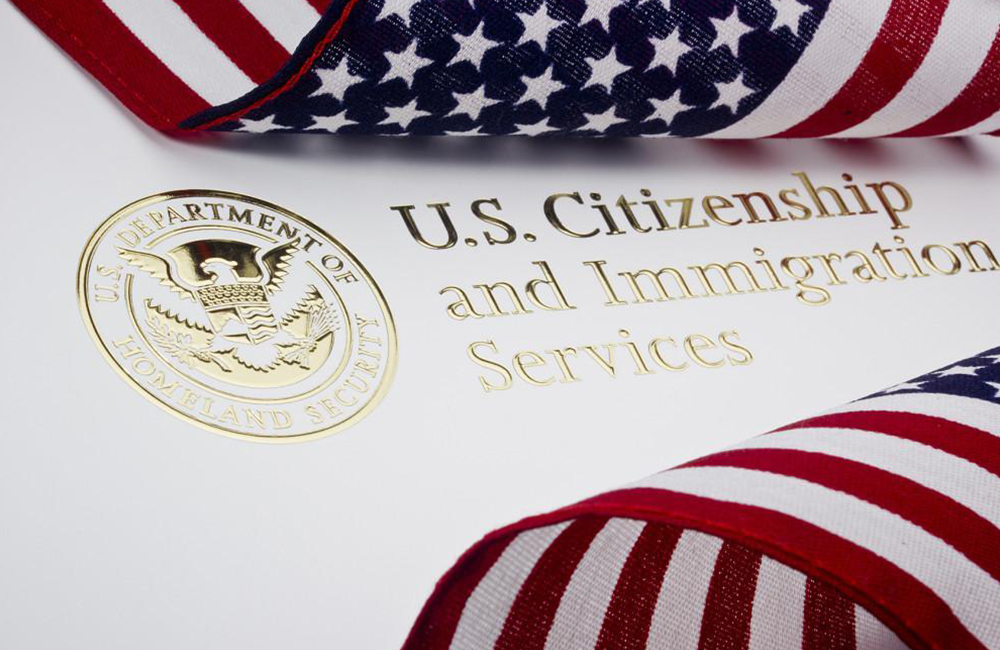
In 1987, then-Senator Joe Biden’s first failed attempt at becoming U.S. president ended after he was caught plagiarizing another politician’s phrases during a debate. Fast forward to 2019, and after a second failed attempt at becoming president in 2008, Biden again was caught passing off other people’s work as his own without attribution. Viewed as the best candidate to unseat President Trump, Biden was given a pass this time by the media and Democratic primary electorate, propelling him to the nomination and eventually an electoral victory.
Taking credit for the work of others apparently resonates throughout President Biden’s administration. In a June 24 email, U.S. Citizenship and Immigration Services (USCIS) provided the public an update on the comments received during a 30-day Request for Public Input (RPI) about “barriers to USCIS benefits and services”. The agency described the public response as “overwhelming”, noting that it received approximately 7,400 submissions during the comment period. I submitted one of those comments on behalf of the Center, emphasizing that caps, requests for evidence, screening and vetting, and reasonable processing times are not “barriers”.
Then the USCIS email includes a sentence full of revisionist history that forced me to re-read it multiple times to ensure I read it correctly. According to Biden’s USCIS, “Many of your comments reinforce the importance of the actions that USCIS has already started under the Biden Administration, including increasing access to online filing options, revising the fee schedule, and addressing COVID-19 related processing delays.” (Emphasis added.)
Having just spent the past four years at USCIS, I can definitively say that none of the three items listed originated under the Biden administration. The most glaring example of overreach is the first, “increasing access to online filing options”. While there may be new forms available online today compared to the end of 2020, that process was kicked off by the Trump administration. On May 22, 2019, then-Director Francis Cissna announced “a new strategy known as eProcessing to accelerate USCIS’ transition to a digital business model. eProcessing will be a complete digital experience, from applying for a benefit, to communicating with USCIS, through receiving a decision on a case.” The goal was for all forms to be available electronically by the end of 2020, a goal we missed, but the investment toward making it happen is solely attributable to Cissna making it an agency priority.
The same holds true regarding the USCIS fee schedule and reducing Covid-19-related processing delays. USCIS, under the Trump administration, published a revised fee schedule for fiscal years 2019 and 2020 that would have ended most fee waivers and exemptions (which were losing the agency $1.5 billion a year) and increase fees to levels that properly covered the cost of adjudication. While a federal district judge blocked that rule on dubious procedural grounds, permitting a daily budgetary shortfall of $3 million, agency staff were already working on the next fee rule before the election was held. Again, it is likely that the Biden administration is making revisions (e.g., increasing fee waivers), but they did not start this process. Nor did the Biden administration begin addressing the various backlogs that formed when USCIS was forced to shut down its offices in Spring 2020 to stop the spread of Covid-19. As soon as USCIS reopened offices in a limited capacity in Summer 2020, then-acting director Joe Edlow put in place several measures and accommodations to streamline the adjudication process that was clogged when in-person interviewing was an impossibility.
While imitation is often said to be the sincerest form of flattery, passing off someone else’s work as your own is not.
